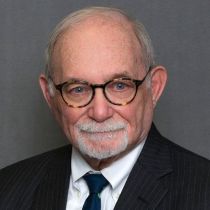Howard Teitelbaum, Ph.D., D.O., MPH

- Family and Community Medicine
Faculty
965 Wilson Rd.
Room A331B
East Lansing, MI 48824
Howard Teitelbaum, D.O., Ph.D., MPH, is currently Professor of Medicine at Michigan State University College of Osteopathic Medicine. He is also Professor Emeritus at Michigan State University and Lincoln Memorial University. He founded the Department of Preventive and Community Medicine at the Lincoln Memorial University-DeBusk College of Osteopathic Medicine. He was on the Faculty of the New York College of Osteopathic Medicine where he was the Associate Dean for Graduate Programs. He received his Ph.D. and Doctor of Osteopathic Medicine (D.O.) from Michigan State University. He also has a Master’s in Public Health (M.P.H.) from the Harvard School of Public Health. He completed his internship at Mount Clemens General Hospital in the State of Michigan and completed his residency in Preventive Medicine at the Yale University School of Medicine. He has held faculty positions at Michigan State University College of Osteopathic Medicine, the Yale University School of Medicine, and the New York College of Osteopathic Medicine. He has been attending physician at the preventive medicine clinics in New Haven, Connecticut and the adult health clinic at the Ingham County Health Department. He was the medical director at the Insight clinic for substance abuse and chemical dependency and the St. Lawrence Hospital substance abuse clinic, both located in Lansing, Michigan. Diabetic patients with Substance Use Disorders presents unique challenges. The patient’s self-discipline and, in many cases, a disordered living and social structure makes management of health conditions exceedingly difficult. Removing any external impediments like design flaws in insulin pumps is an absolute necessitiy.
Dr. Teitelbaum has held several administrative and academic posts in his career. He was a professor in the Department of Internal Medicine at Michigan State University and served as chair of several college and university committees. He has also been the Dean of the Des Moines University College of Osteopathic Medicine. He then became a senior research fellow at the American Association of Colleges of Osteopathic Medicine in Bethesda, Maryland where he completed a study of the curriculum at all the colleges of osteopathic medicine in the United States. The result was a book entitled Osteopathic Medicine in the United States: Improving the Future of Medicine.
He is the author of numerous research papers and presentations and serves on several state and national committees. He is recognized as an expert in medical education curriculum. He has been a consultant on research methodology for several projects and studies and has served on several doctoral committees. He has taught courses in epidemiology, biostatistics, physical diagnosis and specialty courses in internal medicine. He has won many teaching awards most notably the Professor of the Year at Yale in the Department of Epidemiology and Public Health, elected to the Mentor Hall of Fame of the American Osteopathic Association and has won the Northrup Award for Educator of the Year. His research interests are in clinical preventive medicine, community based medical education, health policy, public health and the epidemiology of infectious diseases.
